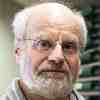Communications of the ACM
Refine your search:
From BLOG@CACM
The Cross-Sectorial Collaborative Shared Value Strategy
A new strategy – cross-sectorial collaborative shared value – aims to increase the impact of the organization’s social investments.
From BLOG@CACM
What Liberal Arts and Sciences Students Need to Know About Computing
Defining goals for computing education beyone CS and Informatics offerings.
From BLOG@CACM
Computers for Learning: Charisma that Fails to Disrupt?
Two books examine why large-scale learning technology often doesn’t achieve expectations. Technology can improve learning at scale, but charismatic stories about...
From BLOG@CACM
Teaching Critical Computing is a Grand Challenge for the Whole CS Curriculum
We need to prepare our students' to have a critical perspective on computing, and that requires changing the curriculum, not just a course.
From BLOG@CACM
Konrad Zuse's Guestbook: a Treasure Trove
Computer scientist Konrad Zuse created the world's first programmable computer, the functional program-controlled Turing-complete Z3.
From BLOG@CACM
From Solar Sunrise to SolarWinds
The hack of critical departments of the U.S. government—and of many leading corporations—should come as no surprise.
From BLOG@CACM
An Enigmatic Device from Denmark
Discovery of a very rare surveying instrument in Denmark.
From BLOG@CACM
Computer Systems Research: The Joys, the Perils, and How to Count Beans Well
This post is meant to highlight my subjective take on the joys and the road bumps on the way to doing innovative work in computer systems.
From BLOG@CACM
Birthday Bit Boundaries
Which birthdays would have special significance if our culture were binary-based instead of decimal-based?
From BLOG@CACM
Why Focus on Technologies for Human Learning?
By choosing human learning as a topic area, computer scientists can contribute to major societal challenges, win grants in additional programs, and tackle new computer...
From BLOG@CACM
How Do You Calculate on the Abacus?
Considering the use of one of the most long-lived calculating devices.
From BLOG@CACM
Deadlines of the Digital Turn
Sometimes the digital turn forces us to designate things that aren't there.
From BLOG@CACM
Tracking Down a Seminal Work on Computer Construction – in Russian
A Russian edition of Rutishauser's standard work on computer construction.
From BLOG@CACM
Why I Don't Recommend CSRankings.org: Know the Values You are Ranking On
Just because a ranking is computable doesn't mean that it's right.
From BLOG@CACM
Agile Management of the Corona Crisis in the Start-Up Nation
Is there an efficient management solution for this crisis?
From BLOG@CACM
Discovery: User Manual of the Oldest Surviving Computer in the World
A rare find: the user manual of the oldest surviving computer in the world, the Zuse Z4 relay machine (1945).
From BLOG@CACM
The Laughing is Over
Celebrating the 50th anniversary of the first U.S. Computer Chess Championship in 1970.
From BLOG@CACM













